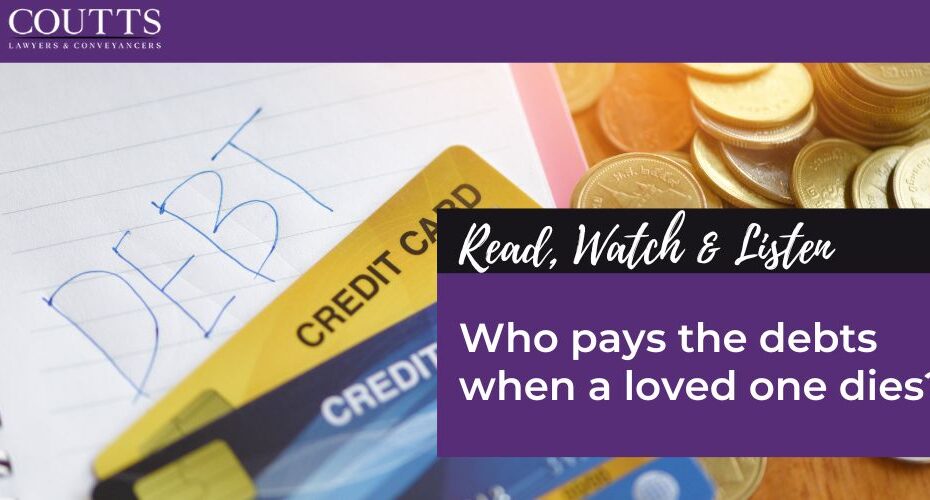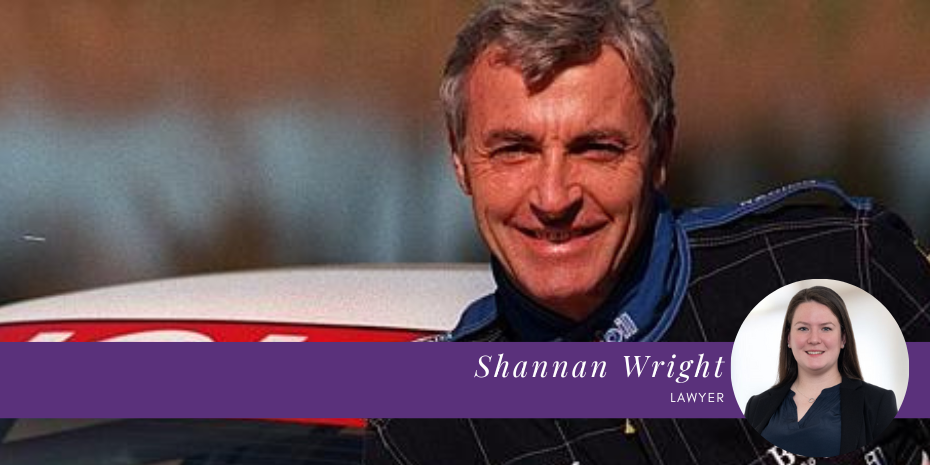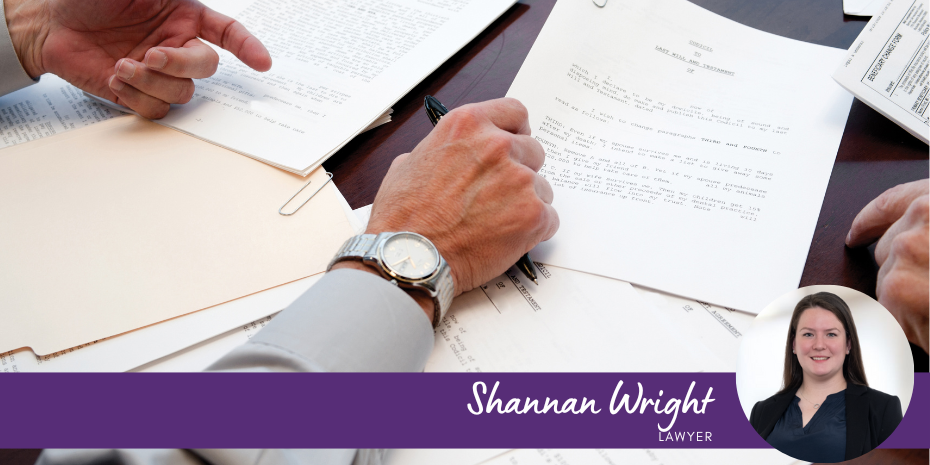KEY TAKE-OUTS:
- The executor does not have to pay the deceased’s debts from their own money.
- There is an order of payment of debts, with funeral and testamentary expenses taking priority.
- Monies received by a beneficiary from superannuation or insurance are not usually applied to debts.
An executor’s responsibility and debts
Many people are worried that if they are appointed as an executor in a will or are the next of kin of a person who dies without a will, they will be left paying the deceased’s debts.
Although the executor or next of kin is responsible for ascertaining what debts the deceased had and ensuring that they are paid, the executor does not use their own money to pay the debts. Any outstanding amounts are to be paid from the deceased’s money, such as from a bank account or from the sale of the deceased’s assets.
The executor or next of kin if there is no will, must however ensure that no asset is transferred or distribution made to a beneficiary until all debts have been repaid. Failure to do so may result in the executor or next of kin of a person who dies without a will, being personally liable for the debt if the amount due is unable to be recovered from the beneficiary who received it.
Should the deceased not have enough money to meet their debts, the estate will be declared insolvent and the debts will not be repaid.
What if there is not enough money to cover ALL of the debts?
The Probate and Administration Act 1898 – Schedule 3, sets out the rules as to the order of payment of debts.
Funeral, testamentary and administrations expenses
The funeral, testamentary and administration expenses of a deceased have priority and must be paid first.
Secured debts
Followed by the repayment of secured debts.
Secured debt means at the time of the deceased obtaining funds from a lender, the deceased provided security to the lender via an asset owned by the deceased.
If the deceased then failed to repay the amount borrowed, the lender can recover the money owed by seizing and selling the asset used as security by the deceased.
Common examples of a secured debt are a mortgage on a real estate property or a chattel mortgage on a car.
Unsecured debts
Unsecured debts are the last debts to be paid. These are debts where no security for payment has been provided to the lender by the deceased.
In the case of default, the lender needs to take court action to recover the funds.
Common examples of unsecured debts are credit cards, personal loans and bills such as utilities.
What assets won’t be applied to the deceased’s debts?
Joint assets
If the deceased holds an asset with another joint owner such as a bank account, the funds in that account pass to the joint holder by way of survivorship. The funds do not form part of the estate and are not therefore available to meet payment of the deceased’s debts.
Superannuation
If the deceased nominates a dependent beneficiary to receive the proceeds of their superannuation entitlements on death, those proceeds can not be applied to the deceased’s debts. This includes payment of funeral expenses.
If however, the deceased does not nominate a dependent beneficiary to receive the proceeds of their superannuation entitlements on death, the Trustee of the superannuation fund may determine that the estate is to be the recipient of the deceased’s entitlements. The funds received by the estate can then be applied to meet the debts of the deceased.
Life Insurance
Sections 204 and 205 of the Life Insurance Act protect the proceeds of a life insurance policy being used to pay the deceased’s debts, other than funeral and testamentary expenses which can be paid from the proceeds.
A person can however choose to expressly state in their Will that they wish for the proceeds of the life policy to be applied to pay their debts.
How can Coutts Lawyers and Conveyancers help you?
If you are an executor or next of kin of a person who has died without a will and need help understanding your role, please contact our friendly Wills and Estates team for further advice.
For further information please don’t hesitate to contact:
info@couttslegal.com.au
1300 268 887
Contact Coutts Lawyers & Conveyancers today.
This blog is merely general and non-specific information on the subject matter and is not and should not be considered or relied on as legal advice. Coutts is not responsible for any cost, expense, loss or liability whatsoever in relation to this blog, including all or any reliance on this blog or use or application of this blog by you.



